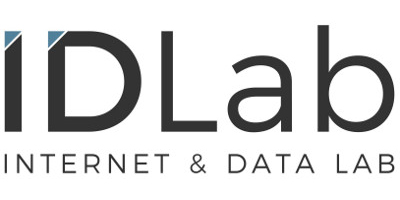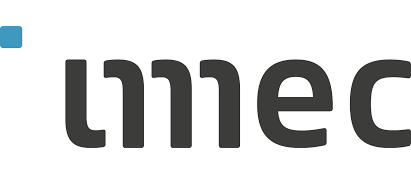Project Partners
IDLab Ghent

The IDLab Ghent research group (IDLab – idlab.ugent.be), part of Ghent University, performs fundamental and applied research on Internet based communication networks and services. The research itself is structured in 10 different research clusters, but the work in IDEAL-IoT will be conducted mainly by the “Mobile & Wireless Networking” cluster and to a smaller extent by the “Network and Service Management” cluster.
The Mobile and Wireless Networking research cluster (3 professors and 25 researchers) focuses on the design of novel network architectures and advanced networking algorithms & protocols for mobile and wireless networks. As such, IBCN has gained extensive knowledge on a variety of wireless communication technologies (IEEE 802.11, IEEE 802.15.4(e), sub-GHz 802.15.4, Bluetooth Low Energy, LoRa), architectures and protocols. A lot of attention is given to the design of solutions for networked embedded systems and their integration in the Internet, i.e. the realization of the Internet of Things. We address all layers of the protocol stack ranging from MAC layer protocols over routing, positioning… to, more recently, application layer protocols, including innovations such as group communication, sensor function virtualization, fine-grained and dynamically controllable management, etc. A lot of emphasis is also placed on the design of suitable reconfigurable networking components including (i) radio agnostic reconfigurable MAC design and (ii) partial over the air protocol stack updates. Finally, research is also done regarding the design of proper diagnostic components, together with the necessary intelligence to perform appropriate adaptations.
The Network and Service Management research cluster (1 professor, 4 postdocs and 15 researchers) focuses on the design and management of efficient virtualized networked systems, cloud computing, big data processing and scalable software architectures. At a national level, the group is collaborating with industrial partners in many multidisciplinary projects. Also internationally there is strong involvement in European research projects, especially in the Future Internet area. A well-established experimental evaluation environment and a number of technology platforms support these activities. The research group has ongoing collaborations with several international research groups (University College London, University Polytechnic Catalonia, University of Zurich, INRIA, Twente University, and University of München).
In addition, IDLab Ghent has extensive lab infrastructure including large scale experimental facilities that already include LoRa and IEEE 802.15.4g hardware with both indoor and outdoor installations. IDLab Ghent also masters experimentation methodologies to evaluate the technical feasibility and performance at the earliest possible stage.
IDLab Antwerp

The research group IDLab Antwerp is lead by Prof. Chris Blondia and is part of both the department of Mathematics and Computer Science and the department of Applied Engineering: Electronics-ICT at the University of Antwerp. We perform basic, applied and contract research in the general area of distributed systems and communication networks. More specifically, our current research mainly focuses on Internet of Things (IoT), low-power wireless communications & networking, and embedded distributed systems. Our research is structured in 5 different tracks: (i) embedded distributed systems, (ii) management and control of IoT networks, (iii) low-power communications and localization, (iv) stochastic models for the evaluation of complex systems, and (v) modeling and simulation of complex systems.
The group comprises around 40 members, including 7 professors, 4 postdocs, 28 researcher, and 1 support staff. The work in IDEAL-IoT will be conducted by the management and control of IoT networks team, consisting of 3 professors, 4 postdocs and 16 researchers. This research line investigates management and control aspects of low-power wireless networks, with a focus on technology heterogeneity, reliability and Quality of Service. The team develops scheduling, routing, coexistence and service provisioning algorithms and protocols to optimize these aspects. The research is applied to different wireless technologies and protocols, including 5G, 802.11ac, 802.11ah, 802.15.4e, 802.15.4g, LoRa, Sigfox and DASH7.
imec

Imec is headquartered in Leuven, Belgium. We have additional R&D teams in The Netherlands (Holst Centre in Eindhoven), China, Taiwan, and India, and offices in Japan and the USA. Our staff of more than 2,150 people includes over 680 industrial residents and guest researchers. In 2014, imec's revenue (P&L) was >350 million euro.
Imec performs world-leading research in nano-electronics. We leverage our scientific knowledge with the innovative power of our global partnerships in ICT, healthcare and energy. Our goal: creating innovative solutions that are relevant for the industry.
This research project will be carried out within the Perceptive Systems for the Intuitive IoT Department, hosting more than 100 researchers in research groups from both imec in Leuven and from imec-NL at Holst Centre in Eindhoven. Within this department world-leading research is performed for automotive IoT, high-speed wireless, and infrastructure and person centric IoT.
The research team is internationally recognized for the work on circuits and devices for sensors, ultra low power sensor networks and high speed wireless networks. Imec contributes to the ‘Internet of Things’ revolution by developing innovative algorithms, network, radio, dsp and sensor solutions. The department publishes papers in the top conferences and journals in the fields of communications, solid states, and signal processing.
Imec’s technologies and designs with superior performance and power efficiency include flexible radios for seamless 4G/5G and connectivity (Bluetooth , LTE, WiFi, ...); 60 GHz low power radios for short-range Gigabit/s communication and backhaul; cost-effective 79 GHz radars for automotive; ultra-low power short range radios (Bluetooth Smart, ZigBee, WiFi) for battery operated and harvested sensors, and miniaturized sensors to detect gasses and ions.
The infrastructure at imec comprises a design and prototyping lab, a lab for sensor analysis and calibration, and a testbed for application validation and development for distributed wired and wireless IoT networks.
Through the Europractice services and imec’s partnership, the wireless department can get access to the latest commercially available technologies




